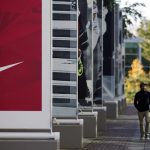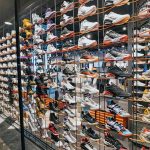Moody’s Investors Service lowered its debt rating on the Italian eyeglass manufacturer Safilo S.p.A. due to the prolonged lockdown measures in most European and American countries and its impact on sales, distribution and manufacturing.
Safilo’s corporate family rating (CFR) was lowered to B3 from B2 and the probability of default rating (PDR) to B3-PD from B2-PD. This rating action concludes the rating review process initiated on 19 March 2020.
“The downgrade of Safilo to B3 reflects our view that the coronavirus outbreak and subsequent global macroeconomic recession will have a deeper than expected impact on Safilo’s cash generation in 2020 resulting in a long-lasting deterioration in the company’s credit metrics which we only expect to recover in line with a B3 rating in 2021/22,” said Paolo Leschiutta, a Moody’s Senior Vice President and lead analyst for Safilo. “The downgrade also reflects the company’s weaker liquidity owing to the expected cash burn in 2020,” continued Mr. Leschiutta.
Rating Rationale
Moody’s said the spread of the coronavirus across Europe, which Moody’s regards as a social risk because of its effect on public health and safety, and the subsequent prolonged lockdown measures in most of the European and American countries, have resulted in significant disruption in the production and distribution activities for those companies with facilities across Italy, like Safilo, and, more generally, across Europe and North America. During the lockdown, most of the stores were closed while sales agents could not visit retailers to collect new orders. Although most markets are now reopening, consumer sentiment remains weak in light of higher unemployment and the global macroeconomic recession.
In this context, Moody’s expects Safilo’s operating performance in 2020 to be well below previous expectations. The company’s EBITDA during the first quarter ending March 2020 was €5.8 million, or 71 percent below the prior year. Safilo also expects that EBITDA in the second quarter will be negative. Although Moody’s expects a degree of recovery in demand during the second half of the year, this will not be enough to offset an “extremely weak first half.” As a result, Moody’s expects Safilo’s free cash flow to be materially negative and its credit metrics to remain well below the levels commensurate with a B3 rating at the end of 2020.
In addition, over the coming months, the Company needs to build up inventories for its important summer collection, and this will require working capital investments putting pressure on its liquidity resources. The current rating, however, assumes that in case of need, the Company would successfully access government funds put in place to support the economy (i.e. “Decreto liquidità”) and obtain bank support to waive a covenants test. However, any additional new debt, together with depressed earnings this year, will result in significantly increased leverage in 2020 with the company’s Moody’s-adjusted gross debt to EBITDA to increase to well above 10x.
The B3 rating assumes that the Company’s operating performance will recover next year and stronger cash generation will allow for credit metrics improvements during 2021. Albeit this recovery is exposed to some execution risk, the rating assumes that Safilo will reduce its financial leverage towards 6.5x and improve its Moody’s adjusted EBIT interest coverage ratio towards 1.0x by the end of 2021.
Moody’s noted that Safilo’s ratings were already weakly positioned before the coronavirus outbreak. This was because of the uncertainty around the Company’s ability to compensate for the expiration of one of its major licenses, Dior, from December 2020. In addition, the Company completed recently two small acquisitions for a total of approximately €118 million which also resulted in a higher amount of debt. Out of this amount, €90 million was financed through a shareholder loan that Moody’s considers as debt in its leverage calculation.
On the positive side, Moody’s noted that the Company was able to contain the level of cash burn during the first months of 2020 and that its prescription business, representing 40 percent of revenues, is likely to benefit from a more rapid recovery in the second half of the year. In addition, despite some disruption at the beginning of the year, the Company’s Asian business (8 percent of revenues) is now performing strongly, while its online business is also growing at double-digit rates. These are, however, not enough to compensate for the difficulties in the core wholesale channel across Europe and the U.S.
Moody’s also recognizes some of the progress achieved by the company over the last 12-to-18 months including (1) a capital increase completed in early 2019 and the extension to 2023 of Safilo’s debt maturity profile; (2) the disposal of the loss-making U.S.-based retail business Solstice; (3) the renewal of a number important licenses, the signing of new agreements and a number of small acquisitions; and (4) the initiation of a renewed cost-restructuring program. All these measures should help the Company to withstand some earnings contraction due to the coronavirus in 2020 and the termination of the Dior license at the end of the year.
Safilo’s portfolio encompasses its own core brands Carrera, Polaroid, Smith, Safilo, Oxydo, and licensed brands Dior, Dior Homme, Fendi, Banana Republic, BOSS, Elie Saab, Fossil, Givenchy, Havaianas, HUGO, Jimmy Choo, Juicy Couture, Kate Spade New York, Liz Claiborne, Love Moschino, Marc Jacobs, Max Mara, Max&Co., Moschino, Pierre Cardin, rag&bone, Rebecca Minkoff, Saks Fifth Avenue, Swatch, and Tommy Hilfiger.
Photo courtesy Safilo
















